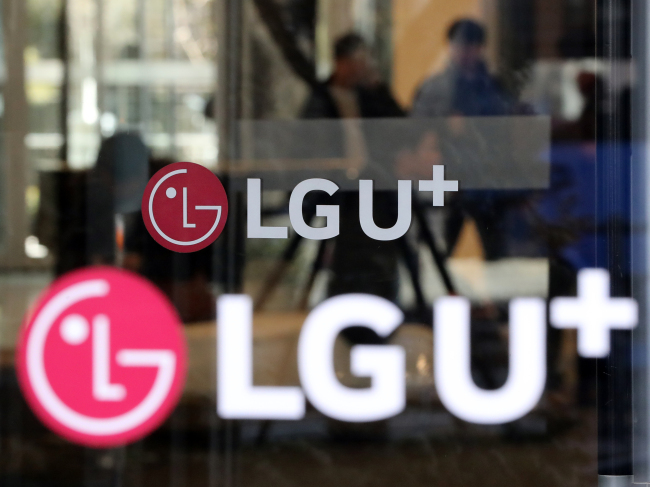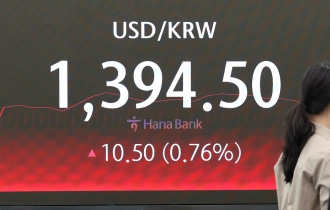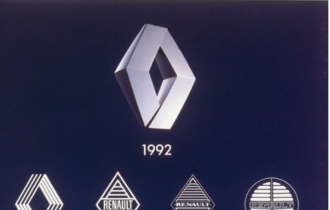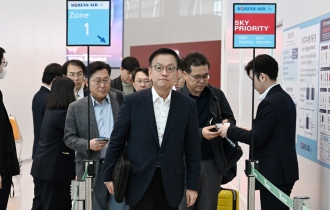Korea discount resurfaces as cable TV deal snubs minority shareholders
South Korea’s antitrust watchdog Fair Trade Commission on Nov. 8. gave the greenlight for LG Uplus’ takeover of cable TV operator CJ Hello, enabling the mobile carrier to capitalize on its pay-TV portfolio and putting the final decision in the hands of the ICT Ministry and the Korea Communications Commission.
In the apparent state-driven move to stir economic growth through mergers and acquisitions, the parties concerned in the deal worth 800 billion won ($687 million) appear to have monopolized the control premium, with LG Uplus gaining bigger footing while CJ ENM will see money flowing in from selling CJ Hello.
Calling this “a predatory practice,” Hong Kong-based private equity firm Excelsior Capital Asia, which owns a 6.6 percent stake in CJ Hello, is mulling legal action. The deal may also disadvantage minority shareholders, including SK Telecom, as well as retail investors who bought shares in what is listed on the Korea Exchange’s main board Kospi.
Moreover, the regulatory pingpong surrounding the takeover deal is leaving Excelsior overwhelmed. The private equity house’s legal counsel Nexus Law Group said the authorities -- FTC, ICT Ministry, KCC and the Financial Services Commission -- neither have faithfully addressed the issue, nor are willing to in the future.

Courtesy of Yonhap
Related:
FTC gives conditional approval to telecoms' M&As as competition heats up
S. Korean telcos’ cable network M&A process drags on
LG Uplus to buy No. 1 cable TV operator CJ Hello
In August, Nexus Law Group sent a letter to call on Cheong Wa Dae to address violation of public interest at play by LG Uplus, CJ Hello and other parties concerned, only to face muted response.
“We expressed frustrations during a plenary session of the FTC that equal distribution of management premiums for the sake of small shareholder rights protection has been sidelined, which could significantly hamper a fair competition in the market,” a legal representative of Excelsior, who declined to be named, told The Investor.
The frustration stems from a policy vacuum for the minority investor protection in the event of any M&A deal.
Room for “Korea Discount”
Such practices are in sharp contrast from those in Japan or the United Kingdom where a major purchase in a publicly traded company’s stake leads to an obligation to make a tender offer to all shareholders at the same price. Also in the United States, the matter of fair premium distribution is overseen by the board of directors, as they may otherwise be prone to class action on a fiduciary duty lawsuit.
On the other hand, Korea in February 1998 abolished the mandatory tender offer rule by revising the Securities Transaction Law, in the wake of Korea’s financial crisis in 1997, to encourage the mergers and acquisitions of distressed firms. This removed a requirement for an acquirer to buy more than 50 percent of the shares through a tender offer when it intends to buy at least 25 percent of the outstanding shares of a listed company.
Since then, minority shareholders of such acquired companies have been left to the dust. Small investors have also become prone to unwanted discounts in their stock price in the M&A process as large shareholders move to lower the total share purchase price.
For example, KB Financial Group acquired Hyundai Securities’ 22.56 percent stake in April for 23,182 won per share -- paying roughly a 200 percent control premium.
When the group merged Hyundai Securities with the group’s own brokerage arm later the same year, it fixed the share swap rate at 1,000 of KB Financial’s newly issued shares for some 191 shares of Hyundai Securities.
This allowed KB Financial to buy approximately 70 percent of Hyundai Securities shares for some 6,700 won per share -- similar to the market price without premiums -- and eventually lower the total acquisition price.
Such practices were also observed in Mirae Asset Group’s takeover of Daewoo Securities, Kumho Holdings’ acquisition of Kumho Industrial and Hanwha Group’s purchase of a stake in Samsung Techwin.
“The impartial distribution of management premium in any M&A deal is crucial because the essential value of the premium lies at the license held by the acquired company as a whole,” a Nexus Law Group attorney said.
While there is no obligation in premium distribution, it is up to an acquirer whether to guarantee the rights of small shareholders. Nexus Law Group recalled SK Telecom’s attempt to buy a 30 percent stake in CJ Hello in 2016, where acquirer SKT discussed an offer to purchase 8.6 percent of existing shareholders’ stakes through a public tender offer before the deal collapsed due to FTC opposition.
Will LG Uplus buck the trend?
Unlike SKT, LG Uplus has delayed related discussions. While the decision remains pending, the stock price of CJ Hello has fallen nearly 40 percent as of Nov. 11 since the acquisition was first made public in February. Room for LG Uplus to adopt similar tactics abound, given its 90 percent management premium of the market price it is paying to CJ ENM.
“LG Uplus is willing to pay the lofty control premium, recognizing the futuristic value of CJ Hello’s national license as a cable TV service and a telecommunications business provider. We find that the largest shareholder’s monopoly on the value undermines fairness in a financial market,” said the attorney.
There have been calls to bring the policy framework for fair premium distribution back to life, to little avail.
Experts point to policymakers’ concerns that their reintroduction of the mandatory tender offer might lead to a higher price tag and could further stifle M&A activities here.
“State authorities are making wrong analogies,” Kim Woo-chan, a professor at Korea University, told The Investor. “Family-owned conglomerates would not be happy as well if the mandatory tender offer policy is put in place, because chaebol buy the controlling stake so that they can monopolize the premium.”
“Those in power will strongly oppose the revival of obligatory public offer rules,” Hwang Sei-woon, a research fellow at the Korea Capital Market Institute, told The Investor, adding this puts a damper on reinviting discussion or gathering public opinion.
Another market pundit, Park Ju-gun, CEO of market watcher CEOScore, said there would be few options left for small shareholders given the void of legal framework to curb such practices.
“Under the Korean rules, it requires a two-thirds of voting rights to upset the deal, which is unlikely in this case,” Park said.
By Son Ji-hyoung (consnow@heraldcorp.com)
EDITOR'S PICKS
- Korean won slides amid heightened uncertainty
- Line Next redefines digital market in Web3 era
- Credit card transactions hit W900tr in 2023
- Renault Korea revisits evolution of lozenge emblem
- Finance chiefs of Korea, US, Japan to hold 3-way talks for first time
- Chanel, Louis Vuitton see muted growth in Korea
- Pineapple, mango imports surge to record highs in March
- Doosan, LG team up to debut EV charging robot















